"'Return Loads' to Increase Transport Resources by Avoiding Waste of Empty Vehicle Running" is a publication by the Highways Transport Committee of the Council of National Defense, likely written during the early 20th century amid the challenges of World War I. This book can be classified as a scientific publication focused on transportation efficiency. Its primary topic revolves around the establishment of return-load bureaus to maximize the use of motor trucks and alleviate the burden on railroads during a time of significant logistical strain. The publication details the operational framework and benefits of return-load bureaus that connect shippers with operators of empty vehicles. By allowing trucks to carry loads to their destinations and return with new shipments, the system aims to minimize wasted journeys and enhance the overall efficiency of transportation during wartime. The guide outlines state-level initiatives, the importance of community cooperation, and the practicality of employing local motor express lines for quick deliveries. By fostering a well-organized network of return-load services, the pamphlet advocates for improved logistics that can notably relieve rail congestion and support essential wartime manufacturing and distribution needs. (This is an automatically generated summary.)

'Return Loads' to Increase Transport Resources by Avoiding Waste of Empty Vehicle Running.
By United States. Council of National Defense. Highways Transport Committee
"'Return Loads' to Increase Transport Resources by Avoiding Waste of Empty Vehicle Running" is a publication by the Highways Transport Committee of th...
Information on this author is scarce, but their work continues to inspire readers.
More by This Author
Discover other books written by the same author

Return-Loads Bureaus to Save Waste in Transportation
By United States. Council of National Defense. Highways Transport Committee
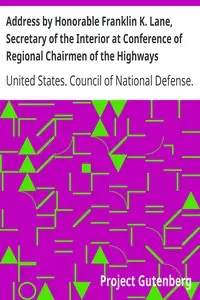
Address by Honorable Franklin K. Lane, Secretary of the Interior at Conference of Regional Chairmen of the Highways Transport Committee Council of National Defense
By United States. Council of National Defense. Highways Transport Committee

Address by Honorable William C. Redfield, Secretary of Commerce at Conference of Regional Chairmen of the Highways Transport Committee Council of National Defense
By United States. Council of National Defense. Highways Transport Committee
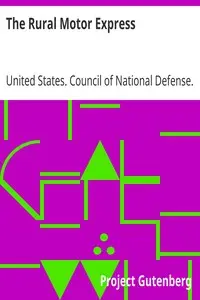
The Rural Motor Express To Conserve Foodstuffs and Labor and to Supply Rural Transportation.
By United States. Council of National Defense. Highways Transport Committee

'Return Loads' to Increase Transport Resources by Avoiding Waste of Empty Vehicle Running.
By United States. Council of National Defense. Highways Transport Committee
More Like This
Explore books similar to the one you're viewing by keywords

The Plague at Marseilles Consider'd With Remarks Upon the Plague in General, Shewing Its Cause and Nature of Infection, with Necessary Precautions to Prevent the Speading of That Direful Distemper
By Richard Bradley
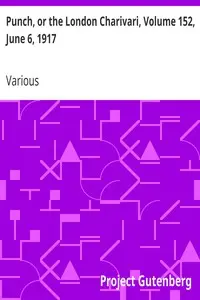
Punch, or the London Charivari, Volume 152, June 6, 1917
By Various

Casa Grande Ruin Thirteenth Annual Report of the Bureau of Ethnology to the Secretary of the Smithsonian Institution, 1891-92, Government Printing Office, Washington, 1896, pages 289-318
By Cosmos Mindeleff
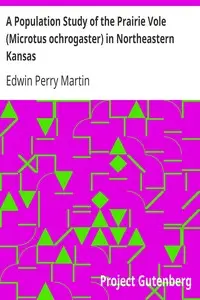
A Population Study of the Prairie Vole (Microtus ochrogaster) in Northeastern Kansas
By Edwin Perry Martin

Birds and Nature Vol. 09 No. 4 [April 1901]
By Various
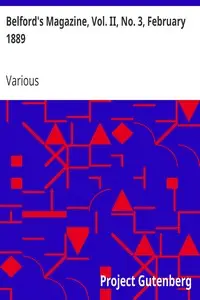
Belford's Magazine, Vol. II, No. 3, February 1889 Dec 1888-May 1889
By Various
Related by Category
Discover books in the same genre or category
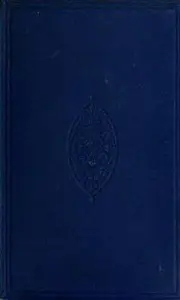
The Evolution of Photography With a Chronological Record of Discoveries, Inventions, Etc., Contributions to Photographic Literature, and Personal Reminescences Extending over Forty Years
By John Werge

A System of Easy Lettering
By John Howard Cromwell
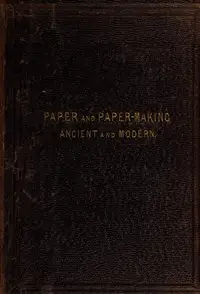
Paper & paper making, ancient and modern
By Richard Herring

Scientific American Supplement, No. 1157, March 5, 1898
By Various

Surveying and Levelling Instruments, Theoretically and Practically Described. For construction, qualities, selection, preservation, adjustments, and uses; with other apparatus and appliances used by civil engineers and surveyors in the field.
By William Ford Stanley
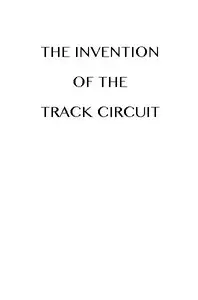
The Invention of the Track Circuit The history of Dr. William Robinson's invention of the track circuit, the fundamental unit which made possible our present automatic block signaling and interlocking systems
By American Railway Association
Account Required
You need an account to complete this action.
